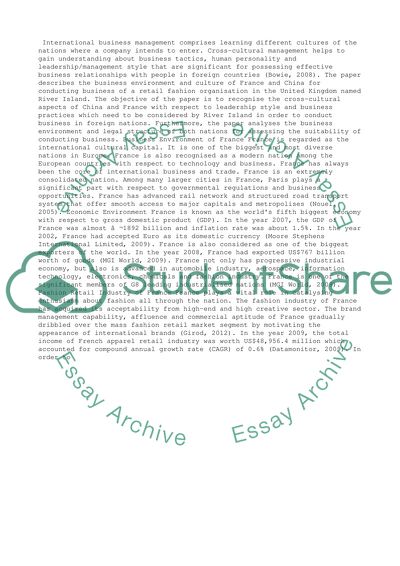Cite this document
(“In France, appropriate conduct, trust and understanding of social Essay”, n.d.)
Retrieved from https://studentshare.org/business/1397007-international-management
Retrieved from https://studentshare.org/business/1397007-international-management
(In France, Appropriate Conduct, Trust and Understanding of Social Essay)
https://studentshare.org/business/1397007-international-management.
https://studentshare.org/business/1397007-international-management.
“In France, Appropriate Conduct, Trust and Understanding of Social Essay”, n.d. https://studentshare.org/business/1397007-international-management.


